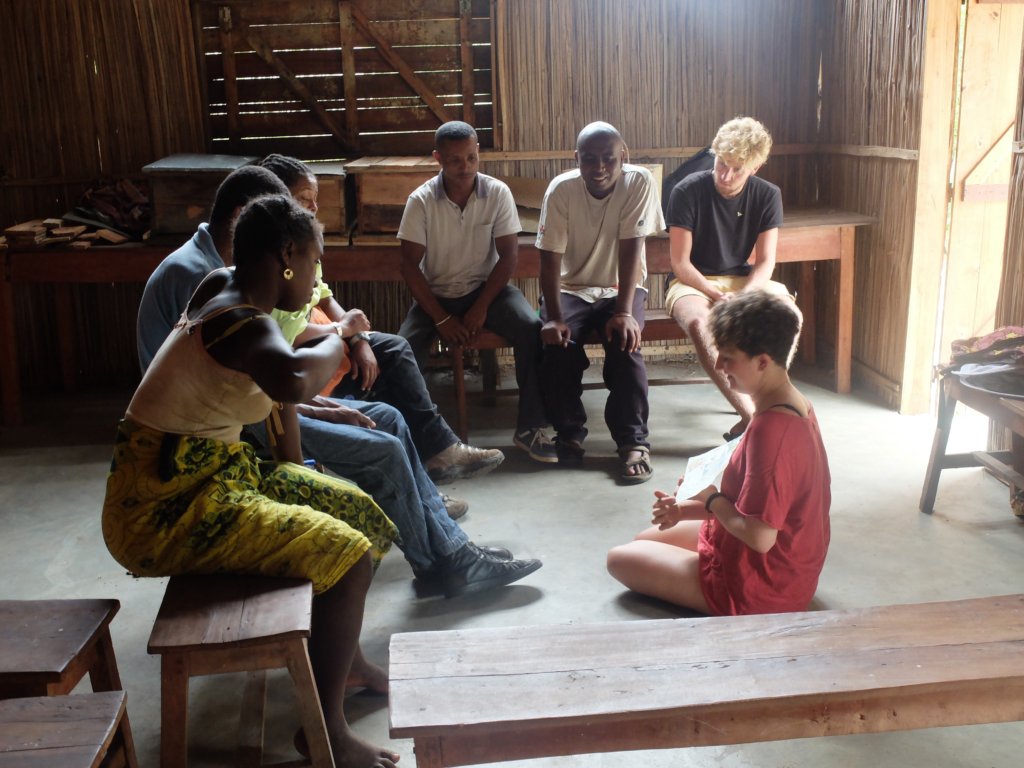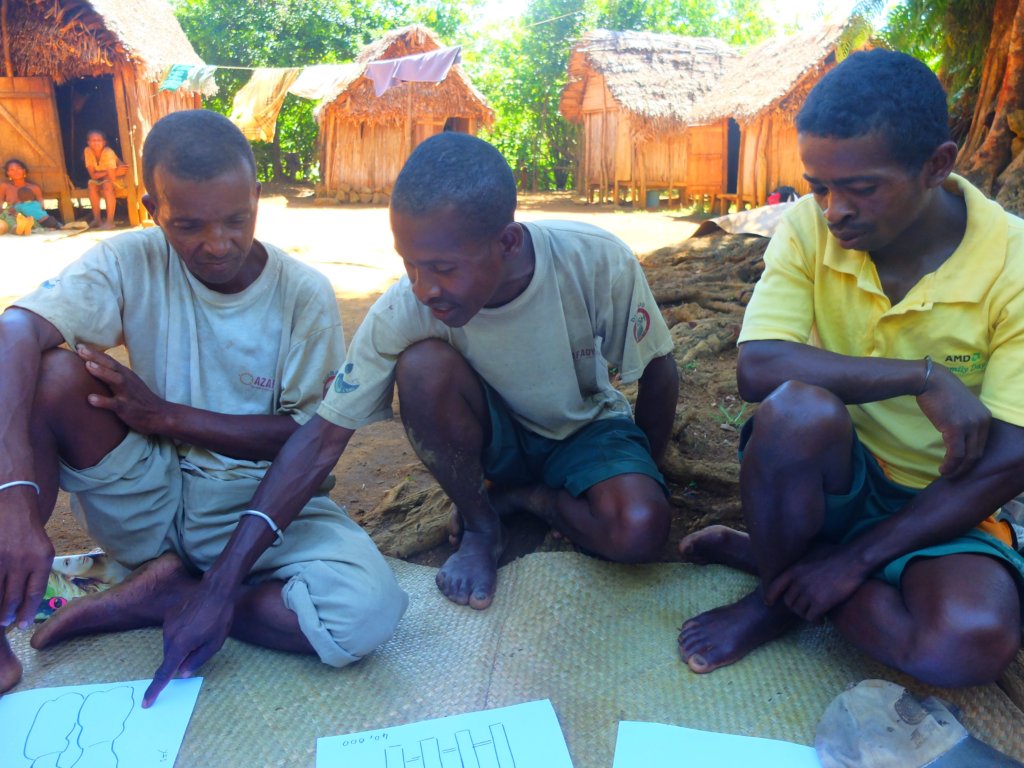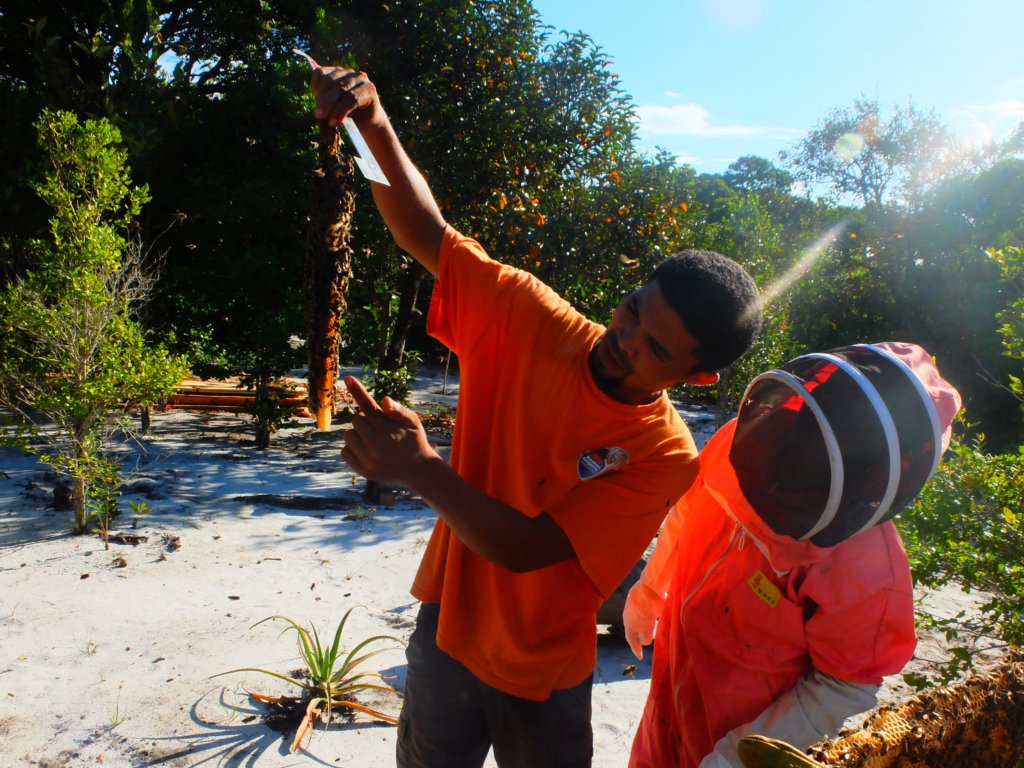By Harry Stigner | International Beekeeping Specialist
Since the New Year, Project Renitantely has been focusing on delivering some exciting workshops about the lifecycle of the honeybee to our primary beekeepers.
A large majority of the beekeepers we work with are illiterate, and we found they frequently forgot details of training given during our project pilot. To overcome these obstacles, all of Project Renitantely’s educational activities are supported with hands-on guided workshops and Visual Learning Aids (VLAs). We’ve found that the best way to ensure the long-term sustainability of our training is to make the VLAs bright and colourful so that beekeepers are encouraged to decorate their walls with the images rather than repurposing the raw materials as fuel or rolling papers.
Taking the beekeepers through each stage of the bee’s lifecycle helps them to determine whether their queen is laying healthy brood and identify when there might be a problem in the hive. It also lays a solid foundation of understanding that can be built upon next month when we’ll be teaching them how to split hives and create new colonies. This will not only help our beekeepers to generate an additional income, it will also ensure that colonies can be bought locally from healthy hives where diseases and infestations are being carefully monitored and controlled.
Ensuring that the beekeepers understand crucial facts about life in the hive, like the fact that it takes eight units of honey for the bees to produce one unit of wax, will help beekeepers to understand why it’s important not to harvest too much honey before the bees have been able to build their comb and store a surplus of food. This is crucial for preventing swarms, increasing honey yields and supporting strong healthy colonies of Apis mellifera unicolour, Madagascar's endemic sub species of honeybee.
We’ve also used this training as an opportunity to ensure that the beekeepers can take pride in the wider benefits of the work they're doing to protect the health of their bees. By supporting healthy colonies they are not only securing an income for their families, they are also supporting the bees' pollination services for the wider 5km radius. This helps to protect the last surviving fragments of Madagascar’s Tsitongabarika rainforest and has been shown to have the potential to increase fruit tree yields in the region by up to 80%. This is an invaluable pollination service in an area where over 80% of inhabitants are living below the poverty line.
None of this would be possible without your ongoing support. In her lifetime a single worker honeybee will fly over nine miles to forage for nectar and pollen before dying of exhaustion, but for all this hard work she only makes a thirteenth of a teaspoon of honey. Honeybees not only provide sustainable livelihoods for vulnerable beekeepers, but collectively bees pollinate 75% of the world’s food crops. If we can learn anything from the hive it’s that the smallest contributions can be the hero of the story. Whatever the size of your contribution, we’ll ensure that it goes a long way to protect the threatened bees, communities and rainforest in southeast Madagascar.
Project reports on GlobalGiving are posted directly to globalgiving.org by Project Leaders as they are completed, generally every 3-4 months. To protect the integrity of these documents, GlobalGiving does not alter them; therefore you may find some language or formatting issues.
If you donate to this project or have donated to this project, you can recieve an email when this project posts a report. You can also subscribe for reports without donating.
Support this important cause by creating a personalized fundraising page.
Start a Fundraiser


